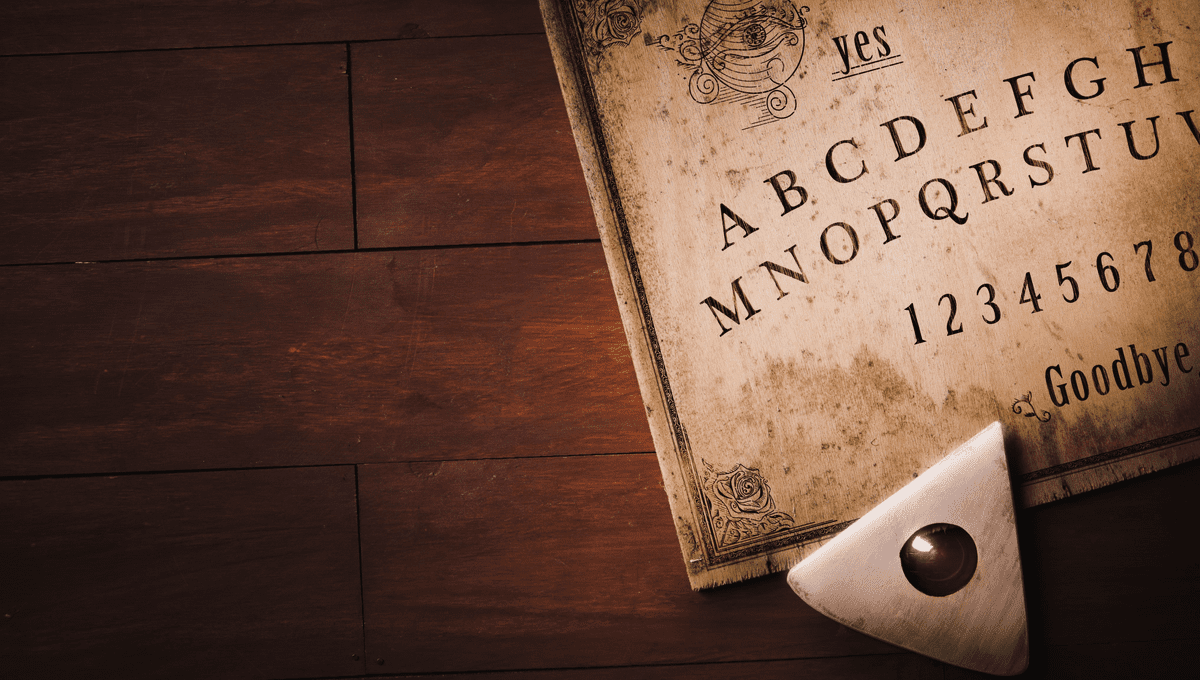
Let us tell you a tale of murder most foul: many years ago, in a village called Wadhurst, in England, a newlywed couple were murdered in cold blood inside their cottage. The husband was killed first; the wife called for help, but her pleas were unintelligible through her injuries, and nobody came to their rescue.
Later, it was determined by the local authorities that a man named Stephen Young had carried out the gruesome deed. He was put on trial, wherein a jury of twelve locals, their bellies full of ale, performed an occult ritual in which they attempted to contact the spirits of those he had murdered.
Convinced that the victims’ ghosts had confirmed Young as their killer, the panel chose to convict – and so justice, everybody said, was done.
Well, for a few weeks, that is. See, while you may have read everything above and assumed this all happened back in the 14th century or thereabouts, in reality, we’re talking about a case that’s way more modern. As in, this happened while The Backstreet Boys were a thing.
The year was 1994; the accused murderer was Stephen Young; and the “occult ritual” used by the jurors was a homemade facsimile of a game trademarked by Hasbro – in other words, a Ouija board.
“Stephen Young done it,” a “spirit,” supposedly identified as victim Harry Fuller, spelled out. And, when asked how it happened: “Shot.”
“I think it was … I’m using the word ‘stupid’ but it’s far worse than that,” Graham Hill, father of the murdered Nicola Fuller, told ABC News in 2018, more than a quarter-century after the original crime was committed.
“[It] is making an absolute mockery, and it’s the most serious type of trial you can ever have […] There is no element of humor in it at all, there’s no frivolity in it at all, and yet those four members of the jury made it into a laughing stock.”
But what could have driven twelve apparently sound-minded jurors to get wasted in a hotel lobby and try to contact the dead? They knew it was against the rules – some were driven to tears during the “séance”, and others would later openly regret their actions.
Perhaps one clue to explain their actions could be found in Nicola Fuller’s last moments, thought University of Melbourne criminal law professor Jeremy Gans, author of the book The Ouija Board Jurors: Mystery, Mischief and Misery in the Jury Room. Because this was the 90s, Fuller’s last, desperate moments were spent calling for help – calling the police, to be specific.
That meant that her death was caught on audio tape – and that audio was played to the jury. In fact, it was played to two juries, Gans explained.
“[The first jury panel] lasted a whole day before one of the jurors wrote a letter to the judge saying that she couldn’t go on,” he told ABC. “And the judge at that point said, ‘Okay, we’ll just start again with a new jury,’ because he didn’t want to have to work out how to deal with this one upset juror.”
It must have been a very traumatic experience, he said; “it made me think that whatever was going on in that hotel room probably wasn’t good times for the jury but perhaps something else.”
The drunken supernatural shenanigans, Gans suggested, was the jury members “coping with what they were hearing.”
Here’s the problem, though: Ouija boards are not, in fact, a legitimate replacement for DNA evidence or critical thinking. They don’t work by contacting the dead, but via the ideomotor effect: the subconscious and involuntary movements a person makes when they think about moving for real.
“The illusion that it is moving on its own is incredibly strong,” Chris French, a professor emeritus of psychology at Goldsmiths University of London, told Discover Magazine in 2021. But in reality, it’s a simple psychological bias: you think about the glass or planchette moving, so you move it – just a little, and without really knowing that you’re responsible, but enough.
And “once it starts to spell something, inevitably, you’re trying to guess, even if you’re not doing it consciously,” French added. “If you ask, ‘What’s your name?’ and it goes to the letter p, and then e, you’re automatically thinking ‘Peter.’ Probably everybody else around the board is also thinking ‘Peter.’ And that’s what is likely to be then spelt out.”
But ultimately, whether it was a coping mechanism or the jurors truly did believe Harry Fuller was talking to them from beyond the grave, once the truth came out, it was decided that trial by jury should not include any supernatural – or psycho-natural – aids.
The judgement was overturned, and Young was given a retrial – one which, once again, found him guilty and sentenced him to jail time, true. But as far as we know, this one didn’t involve any spirits – of either the alcoholic or the supernatural variety – in the deliberation.
Source Link: What Happened When A Jury Asked A Murder Victim To Name His Killer